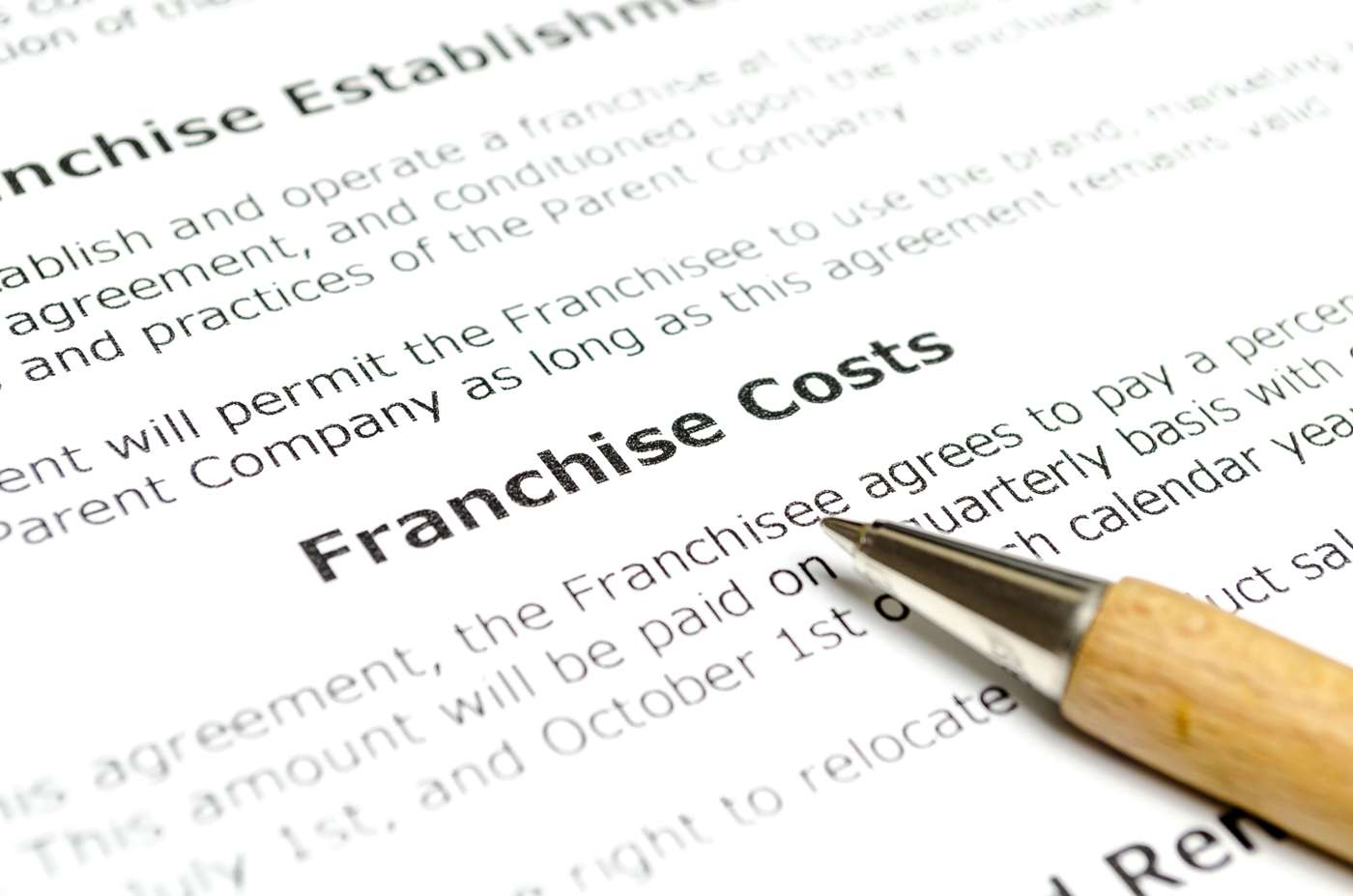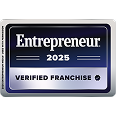Buying a franchise can be a direct route to becoming your own boss. You’ll benefit from an established business model, brand recognition, and franchisor support while managing the day-to-day operations of your own business.
To achieve long-term success in a franchise, you need to understand and compile a franchise cost list. This can help you make a more informed choice about which franchise to join and what expenses to expect going forward.
We’ll break down some common franchise expenses, including initial investments and ongoing fees, and provide a franchise cost list to help you understand how different industries compare.
Breaking Down Franchise Costs

When researching potential franchises, be aware of the various costs involved, including initial and ongoing expenses. The initial investment covers the fees required to start the business, while the ongoing fees include both operational costs and money owed to the franchisor. Knowing these costs will help you better plan for a profitable, long-term investment.
Common Up-Front & Ongoing Franchise Expenses
Every franchise requires upfront and recurring investments. When you purchase a franchise, you should expect to pay:
- Initial franchise fees: These one-time payments give you the right to operate under the brand.
- Training and support costs: There may be fees associated with learning how to operate your new business and accessing ongoing franchisor support.
- Marketing and advertising fees: Many franchises are required to contribute toward national and local advertising campaigns.
- Facility setup: You’ll need to find a location and furnish it according to the requirements of your franchise agreement.
- Royalty fees: This is a percentage of revenue you’ll pay the franchisor for their continued support and use of their brand.
Calculating Operational Costs of a Franchise
Along with your initial costs, you will need to understand the real cost of opening an insurance business. On-going expenses include rent, utilities, employee salaries, and hardware and software needed for day-to-day business. You may also have periodic fees for extending your franchise agreement or scaling your operations, so be sure to read your franchise agreement closely so you know what costs to expect in the future.
Estimating Your Franchise Expenses
To accurately estimate your franchise expenses, you should categorize your income and expenses in a way that clearly illustrates your spending patterns. Keep reading for some suggestions.
Identify All Costs
Consider both the initial investment and ongoing operation expenses, including marketing, staffing, rent, and equipment. The franchisor should have information on all the required equipment and may be able to help you estimate some of these costs. Ask your support team for financial disclosure documents (FDDs) that outline typical costs based on existing franchisee experience.
Create a Budget Spreadsheet
List all estimated costs, breaking them down into fixed and variable categories. For the variable categories, include a low-to-high range to help you. It’s easy to overlook potential expenses, so look for spreadsheet templates or use business planning software to create a comprehensive budget.
Plan For Contingencies
Even the best plan can encounter unexpected expenses. Set aside a financial cushion to cover these costs during the initial months of operation. You’ll appreciate this extra funding when your sales dip during a slow time or you forget to calculate licensing fees for your software.
Do this for every franchise you are considering, then compare the expenses with estimated income. This can give you a clearer picture of what to expect financially from your franchise and can help you make a better-informed decision about where to invest your money.
Franchise Cost List: What to Expect by Industry
Which franchise is right for you? Calculating your initial investment and estimating your ongoing costs can help you select the right franchise. However, franchise costs can range from a few thousand to a few million, depending on the brand, industry, and location.
Below is a franchise cost list that gives an average range for popular franchise industries.
Insurance Franchise
- Initial investment: $5,000 – $50,000
- Ongoing fees: 5-7% of revenue
Real Estate Franchise
- Initial investment: $15,000 – $35,000
- Ongoing fees: 4-10% of revenue
Restaurant Franchise
- Initial investment: $200,000 – $2,000,000
- Ongoing fees: 4-12% of revenue
Senior Care Franchise
- Initial investment: $30,000 – $175,000
- Ongoing fees: 5-7% of revenue
Fitness Franchise
- Initial investment: $100,000 – $1,000,000
- Ongoing fees: 5-10% of revenue
Education Franchise
- Initial investment: $30,000 – $300,000
- Ongoing fees: 4-9% of revenue
When choosing an industry, consider the average initial investment and the potential market in your area. Franchisors can be extremely helpful in identifying areas most in need of their services. While this can help boost your profitability, remember that it can also impact your ongoing fees.
How to Fund Your Franchise
Some people have the capital in their savings accounts to start a franchise. The vast majority of investors, however, need to secure their investment through other means. Learning how to secure the capital required to start a franchise will help aspiring franchise owners build their dream. If you want to become your own boss with a franchise, here are some funding options to explore:
- Small business loans: Government-backed loans offer favorable terms and flexible repayment options, making them a top choice for new entrepreneurs.
- Franchise financing programs: Many franchisors provide in-house financing options so you can invest while benefiting from good loan terms and personalized support.
- Investors and partnership: Collaborating with financial partners can help distribute the investment burden. It can also bring more expertise and resources onboard to help you grow your business.
Ready to Become Your Own Boss with Freeway Franchise?
Investing in a franchise requires careful financial planning. Taking time to understand the costs can help prepare you for the next steps in becoming your own boss through franchise ownership. With the right franchise investment, you could unlock financial freedom, work for yourself, and enjoy ongoing support from a proven, trusted brand.
If you want an easy franchise to open as a first-time business owner, you should explore Freeway Franchise. We are part of the growing insurance franchise industry and offer a proven business model, comprehensive training, and ongoing support to help you succeed. You can start your Freeway Insurance franchise with an initial investment of as low as $10,000.
Take the first step today!
Contact Freeway Franchise or call (877) 822-3024 for a personalized consultation and discover how you can become your own boss through franchise ownership.


